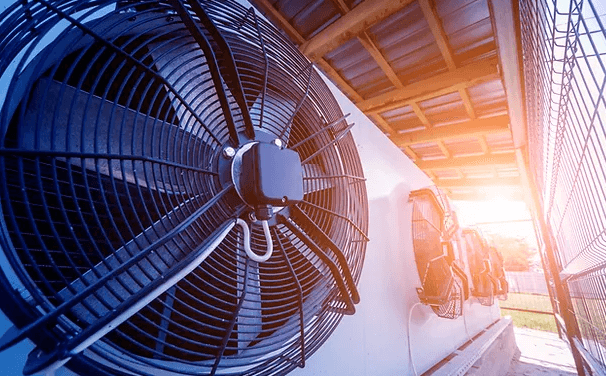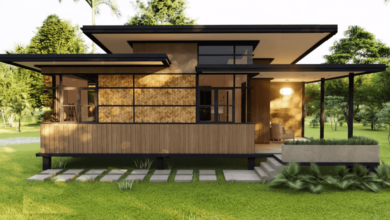Signs It’s Time to Replace Your HVAC System

Maintaining a comfortable indoor environment is crucial for any home, and your HVAC (Heating, Ventilation, and Air Conditioning) system plays a pivotal role in this. However, like any appliance, HVAC systems don’t last forever. As they age, they become less efficient and may even pose safety risks. Recognizing when it’s time to replace your HVAC system is essential to avoid unnecessary repairs, high energy bills, and discomfort.
Understanding the Role of Your HVAC System
Your HVAC system is designed to regulate the temperature and air quality in your home, ensuring comfort during hot summers and cold winters. It includes components like the furnace, air conditioner, heat pump, ductwork, and thermostat. Each part works together to maintain a consistent indoor climate. When any of these components start to fail, it can impact the entire system’s performance.
How Long Does an HVAC System Last?
The lifespan of an HVAC system can vary depending on the type, brand, and maintenance. On average, an air conditioner or heat pump may last 10 to 15 years, while furnaces can last up to 20 years. However, these are just estimates. Proper maintenance can extend the life of your system, but eventually, even the best-maintained systems will need to be replaced.
Key Signs It’s Time to Replace Your HVAC System
Recognizing the signs that your HVAC system is nearing the end of its life is crucial. Below are some of the most common indicators that it’s time to consider a replacement.
Frequent Repairs
One of the clearest signs that your HVAC system is on its last legs is the need for frequent repairs. If you find yourself constantly calling a technician to fix your system, it may be more cost-effective to replace it. Over time, the cost of these repairs can add up, sometimes surpassing the price of a new system.
Rising Energy Bills
As HVAC systems age, they lose efficiency. This inefficiency means your system has to work harder to maintain the desired temperature, leading to increased energy consumption. If you’ve noticed a steady increase in your energy bills without a corresponding increase in usage, your HVAC system could be the culprit.
Inconsistent Temperatures
Are some rooms in your home too hot while others are too cold? This inconsistency can indicate that your HVAC system is struggling to distribute air evenly throughout your home. Aging systems often have difficulty maintaining a consistent temperature, which is a strong signal that it may be time for a replacement.
Strange Noises
Unusual noises such as grinding, squealing, or banging coming from your HVAC system are not normal. These sounds often indicate that internal components are worn out or failing. While some issues can be repaired, persistent noise problems usually suggest that a replacement is necessary.
Excessive Dust and Poor Air Quality
Your HVAC system also plays a role in filtering and circulating the air in your home. If you notice an increase in dust accumulation or a decline in air quality, it could mean that your system’s filters and ductwork are no longer functioning effectively. Poor air quality can lead to health issues, especially for those with allergies or respiratory conditions.
Humidity Issues
An old or malfunctioning HVAC system may struggle to control humidity levels in your home. You might notice excessive moisture in the air during summer or overly dry air in winter. These issues not only affect comfort but can also lead to mold growth and other structural problems in your home.
System Age
As mentioned earlier, the age of your HVAC system is a significant factor in determining whether it’s time for a replacement. If your system is nearing the end of its expected lifespan, it’s wise to start considering a new unit before it fails completely. Modern HVAC systems are more energy-efficient and environmentally friendly, making them a worthwhile investment.
Freon (R-22) Phase-Out
Older HVAC systems often use Freon (R-22) as a refrigerant. However, the production and import of Freon have been phased out due to environmental concerns. If your system relies on Freon, replacing it with a new system that uses a more environmentally friendly refrigerant can save you money and help protect the environment.
Frequent System Cycling
If your HVAC system frequently turns on and off, it’s known as short cycling. This issue can be caused by a variety of problems, including an oversized system, a malfunctioning thermostat, or poor insulation. Short cycling not only decreases the system’s efficiency but also leads to increased wear and tear. If this problem persists, it may be time to replace your system.
Outdated Technology
Advances in HVAC technology mean that newer systems are far more efficient and offer better features than older models. If your system is outdated, you might be missing out on energy-saving features like programmable thermostats, variable-speed motors, and zoned heating and cooling. Upgrading to a modern system can improve your home’s comfort and reduce energy costs.
Rising Repair Costs
As HVAC systems age, the cost of repairs tends to increase. This is partly because finding replacement parts for older systems can be challenging and expensive. If the cost of a repair is more than half the cost of a new system, it’s generally a better investment to replace the unit entirely.
Safety Concerns
Old HVAC systems can pose safety risks, particularly if they use natural gas or oil. Issues such as cracked heat exchangers can lead to carbon monoxide leaks, which are extremely dangerous. If your HVAC technician identifies safety concerns with your system, it’s time to replace it.
Frequent Breakdowns
If your HVAC system is breaking down more frequently, especially during peak usage times like summer or winter, it’s a clear sign that it’s struggling to keep up with demand. Frequent breakdowns not only cause discomfort but can also lead to costly emergency repairs.
Difficulty Maintaining Comfort Levels
As your HVAC system ages, it may become less effective at maintaining the comfort levels you desire. If you find yourself constantly adjusting the thermostat or using additional fans or heaters to stay comfortable, it may be time to consider a new system that can handle your home’s heating and cooling needs more efficiently.
Declining Airflow
Reduced airflow from your vents can indicate that your HVAC system is no longer functioning efficiently. This can be due to several issues, such as a failing blower motor or clogged ductwork. Poor airflow not only affects comfort but also forces your system to work harder, leading to increased energy consumption.
Visible Signs of Wear and Tear
Visible damage to your HVAC system, such as rust on the furnace or corrosion on the air conditioner, is a clear sign that the system is deteriorating. While some cosmetic issues may not impact performance immediately, they often indicate underlying problems that could lead to system failure.
Lack of Regular Maintenance
If your HVAC system hasn’t been regularly maintained, it’s likely to have a shorter lifespan. Lack of maintenance leads to increased wear and tear, reduced efficiency, and more frequent breakdowns. If your system hasn’t been serviced regularly and is showing signs of age, it might be more cost-effective to replace it.
High Humidity in the Home
If your home feels clammy or you notice condensation on windows or walls, it could be a sign that your HVAC system is no longer able to manage humidity levels effectively. High humidity can lead to mold growth and other issues, making it important to address the problem promptly.
Increasing Frequency of HVAC Tune-Ups
Needing more frequent tune-ups is another sign that your HVAC system is nearing the end of its life. While tune-ups are essential for maintaining system performance, if they are needed more often, it might indicate that the system is wearing out and should be replaced.
Your Home Feels Stuffy or Stale
Aging HVAC systems often struggle to maintain proper ventilation, leading to a stuffy or stale feeling in your home. If you notice that your indoor air quality has declined and your home feels less comfortable, it could be a sign that your system is no longer performing as it should.
Choosing the Right Replacement HVAC System
If you’ve identified several of the signs mentioned above, it may be time to start researching replacement options. Here are some factors to consider when choosing a new HVAC system:
Energy Efficiency
Look for systems with high SEER (Seasonal Energy Efficiency Ratio) ratings for air conditioners and AFUE (Annual Fuel Utilization Efficiency) ratings for furnaces. These ratings indicate how efficiently the system converts energy into heating or cooling, which can significantly impact your energy bills.
Size and Capacity
Ensure that the HVAC system you choose is appropriately sized for your home. An oversized or undersized system can lead to inefficiency, discomfort, and increased wear and tear. A professional HVAC contractor can perform a load calculation to determine the right size system for your home.
Modern Features
Consider modern features like programmable thermostats, variable-speed motors, and zoned heating and cooling, which can enhance comfort and energy savings. These features allow for more precise control over your home’s climate and can help reduce energy consumption.
Environmental Impact
Choose a system that uses environmentally friendly refrigerants and has a low environmental impact. Newer HVAC systems are designed to be more eco-friendly, reducing your carbon footprint while maintaining comfort.
Cost vs. Long-Term Savings
While the initial cost of a new HVAC system can be significant, consider the long-term savings on energy bills and reduced repair costs. Investing in a high-efficiency system can pay off over time, making it a wise financial decision.
FAQs
How often should I replace my HVAC system?
Typically, HVAC systems should be replaced every 10 to 15 years, depending on the type of system and how well it has been maintained.
Can I replace just the air conditioner and not the furnace?
While you can replace just the air conditioner, it’s often more cost-effective and efficient to replace both the air conditioner and furnace at the same time, especially if they are both aging.
How can I improve my HVAC system’s efficiency without replacing it?
Regular maintenance, such as changing filters, cleaning ducts, and scheduling professional tune-ups, can improve your system’s efficiency. Sealing leaks in ductwork and adding insulation can also help.
What is the average cost of replacing an HVAC system?
The cost of replacing an HVAC system can vary widely depending on the size of your home, the type of system, and the region. On average, homeowners can expect to pay between $5,000 and $10,000.
Should I repair or replace my HVAC system?
If your system is over 10 years old, requires frequent repairs, or has become inefficient, replacing it is often more cost-effective in the long run. However, if the system is relatively new and the repair is minor, it may be worth fixing.
What are the benefits of a new HVAC system?
A new HVAC system offers improved energy efficiency, better indoor air quality, enhanced comfort, and reduced repair costs. Modern systems also come with advanced features that can save energy and money over time.
Conclusion
Recognizing the signs that it’s time to replace your HVAC system can save you from unexpected breakdowns, high energy bills, and discomfort. If your system is showing several of the signs discussed, it’s wise to start considering a replacement. Investing in a new, energy-efficient HVAC system can enhance your home’s comfort, improve air quality, and reduce your environmental impact. Remember, the key to a long-lasting HVAC system is regular maintenance, so once you have your new system, be sure to keep up with routine care to maximize its lifespan.






